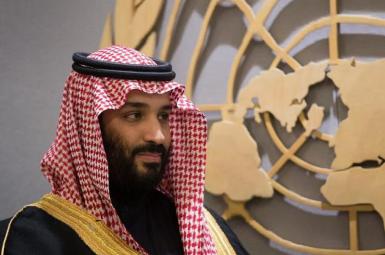
US Pulls Missile Defenses In Saudi Arabia Amid Houthi Attacks - AP
AP- September 11 - The US has removed its most advanced missile defense system and Patriot batteries from Saudi Arabia in recent weeks, even as the kingdom faced continued air attacks from Yemen's Houthi rebels, satellite photos analysed by The Associated Press show.
The redeployment of the defenses from Prince Sultan Air Base outside of Riyadh came as America's Gulf Arab allies nervously watched the chaotic withdrawal of US troops from Afghanistan, including their last-minute evacuations from Kabul's besieged international airport.
While tens of thousands of American forces remain across the Arabian Peninsula as a counterweight to Iran, Gulf Arab nations worry about the US's future plans as its military perceives a growing threat in Asia that requires those missile defenses.
Tensions remain high as negotiations appear stalled in Vienna over Iran's collapsed nuclear deal with world powers, raising the danger of future confrontations in the region.
Prince Sultan Air Base, some 115 kilometers (70 miles) southeast of Riyadh, has hosted several thousand US troops since a 2019 missile-and-drone attack on the heart of the kingdom's oil production.
That attack, though claimed by Yemen's Houthi rebels, appears instead to have been carried out by Iran, according to experts and physical debris left behind.
Tehran has denied launching the attack, though a drill in January saw Iranian paramilitary forces use similar drones.
Just southwest of the air base's runway, a 1-square-kilometer (third-of-a-square-mile) area set off by an earthen berm saw American forces station Patriot missile batteries, as well as one advanced Terminal High Altitude Air Defense (THAAD) unit, according to satellite images from Planet Labs Inc.
A THAAD can destroy ballistic missiles at a higher altitude than Patriots.
A satellite image seen by the AP in late August showed some of the batteries removed from the area, though activity and vehicles still could be seen there.
A high-resolution Planet Lab satellite picture taken Friday showed the batteries' pads at the site empty, with no visible activity.
A redeployment of the missiles had been rumoured for months, in part due to a desire to face what American officials see as the looming "great powers conflict" with China and Russia.
However, the withdrawal came just as a Houthi drone attack on Saudi Arabia wounded eight people and damaged a commercial jetliner at the kingdom's airport in Abha.
The kingdom has been locked in a stalemate war with the Houthis since March 2015.
In a statement to the AP, the Saudi Defense Ministry described the kingdom's relationship with the US as "strong, longstanding and historic" even while acknowledging the withdrawal of the American missile defense systems.
It said the Saudi military "is capable of defending its lands, seas and airspace, and protecting its people."
Saudi Arabia maintains its own Patriot missile batteries and typically fires two missiles at an incoming target.
That's become an expensive proposition amid the Houthi campaign, as each Patriot missile costs more than $3 million.
The kingdom also claims to intercept nearly every missile and drone launched at the kingdom, an incredibly high success rate previously questioned by experts.
While Greece agreed in April to lend a Patriot missile battery to Saudi Arabia, the timing of the US withdrawals comes amid wider uncertainty over the American posture in the region.








